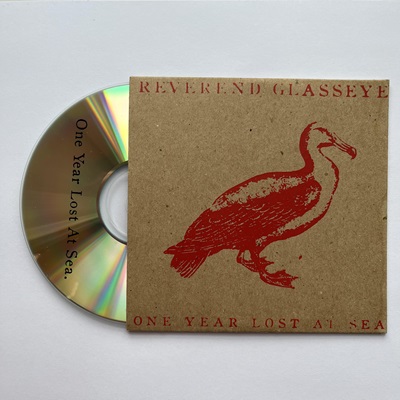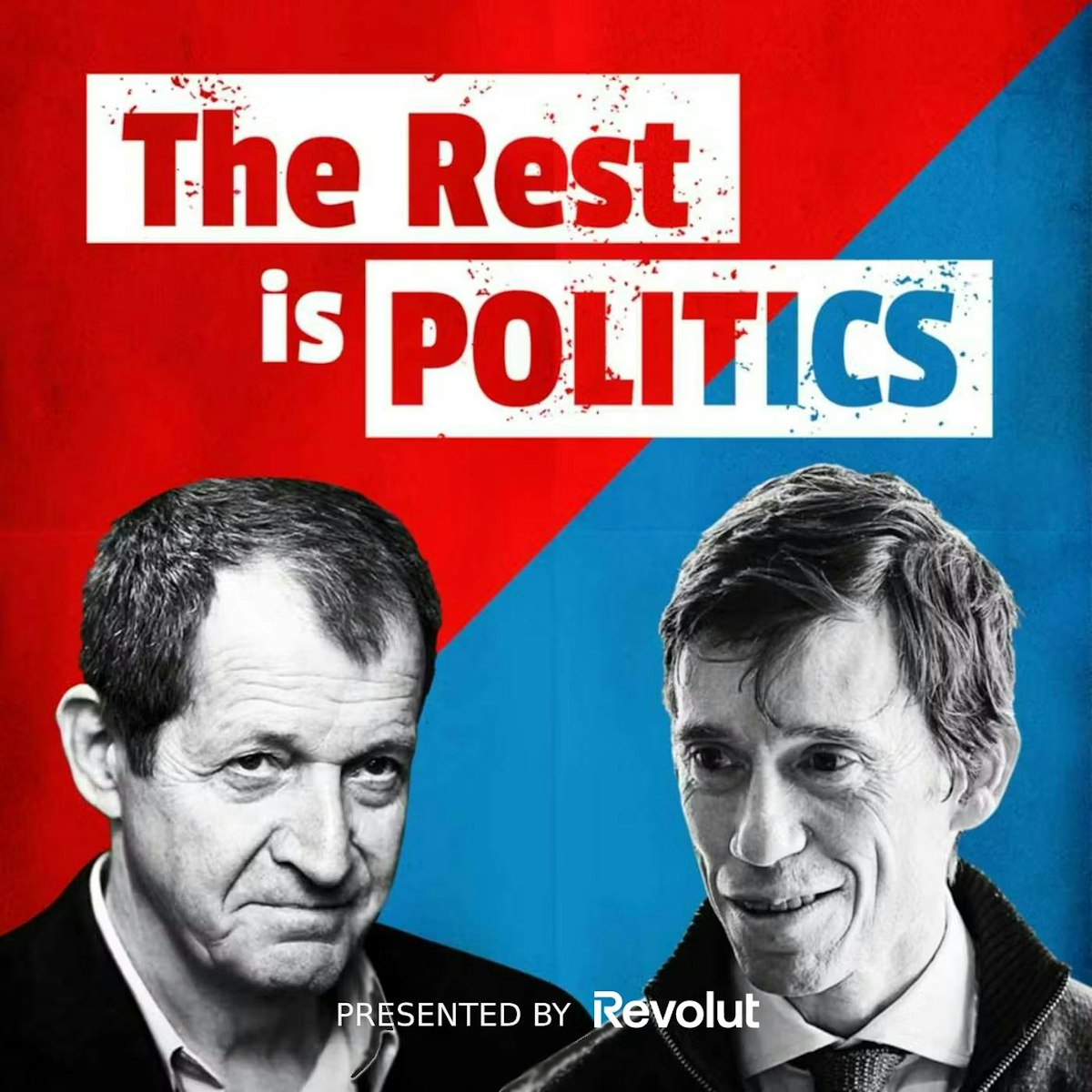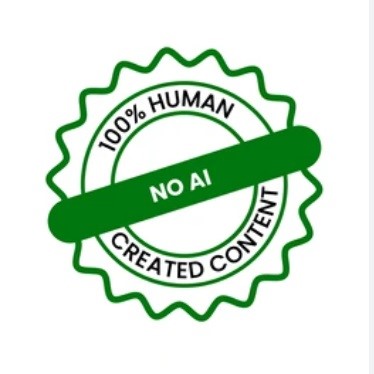 In music, there are two paths you can go by. Either you strive to constantly renew yourself or you stick to a strict formula. Oldboy of the Fens (OotF) belongs to the latter category. They have continued on the beaten path. This isn't the same as being stagnant or uninteresting. This is the finest example of british rural realism. There's no anxious glancing sideways, only a consistent implementation of ideas. OotF (originally just Oldboy) was formed in 2007 by Adrian Hunt (vocals, guitar) and James Campbell (multinstrumentalist). From 2007 to 2024 is an eternity in the gothic country genre. In 2023 OotF made an unsual move. They released a compilation album (16 Songs) on Yellowbelly Records. Most bands and artists aren't around long enough to produce sufficient material for a compilation album. In fact, they either disband or go on a never ending hiatus. The selection criteria for the compilation album was democratic and inclusive with two tracks from each of their previous albums. Personally, I would have included a couple of more songs from "In The Cold Light Of Day". Anyway, now they are back with a new album "The Stillness And The Peace". This is their eight original album (nine if you count their their self-titled ep debut). OotF delivers high and consistent quality on regular basis. This is the case this time, too. The arrangements are stripped-down to the bone and the lyrics deal with death, doom and despair. Maybe, this album is a bit more elaborate and melodic compared with their previous albums. What I particularly like about OotF (and respect them for) is their honesty, unwillingness to compromise and endurance. And, they still release physical albums. Kudos to them. The best songs are "I Take It Back", "The Divine Mistress", "River Bed", "Nowhere" and, last but not least, "Cargo Of Souls". Executive summary: another solid album from Oldboy of the Fens.
In music, there are two paths you can go by. Either you strive to constantly renew yourself or you stick to a strict formula. Oldboy of the Fens (OotF) belongs to the latter category. They have continued on the beaten path. This isn't the same as being stagnant or uninteresting. This is the finest example of british rural realism. There's no anxious glancing sideways, only a consistent implementation of ideas. OotF (originally just Oldboy) was formed in 2007 by Adrian Hunt (vocals, guitar) and James Campbell (multinstrumentalist). From 2007 to 2024 is an eternity in the gothic country genre. In 2023 OotF made an unsual move. They released a compilation album (16 Songs) on Yellowbelly Records. Most bands and artists aren't around long enough to produce sufficient material for a compilation album. In fact, they either disband or go on a never ending hiatus. The selection criteria for the compilation album was democratic and inclusive with two tracks from each of their previous albums. Personally, I would have included a couple of more songs from "In The Cold Light Of Day". Anyway, now they are back with a new album "The Stillness And The Peace". This is their eight original album (nine if you count their their self-titled ep debut). OotF delivers high and consistent quality on regular basis. This is the case this time, too. The arrangements are stripped-down to the bone and the lyrics deal with death, doom and despair. Maybe, this album is a bit more elaborate and melodic compared with their previous albums. What I particularly like about OotF (and respect them for) is their honesty, unwillingness to compromise and endurance. And, they still release physical albums. Kudos to them. The best songs are "I Take It Back", "The Divine Mistress", "River Bed", "Nowhere" and, last but not least, "Cargo Of Souls". Executive summary: another solid album from Oldboy of the Fens.
 We Swedes have such a love and fascination with American culture. This trend accelerated after WWII. Music, movies, cars, clothes, food, drink and you name it. Even the obscure gothic country genre has found its way over here (a strong but limited interest). However, plastic couch covers never made it over the ocean. Their purpose is to protect the couch. In my ignorance I thought that it was to protect the couch when you were away (just as furniture dust covers in the Victorian era). However, the plastic covers were never taken off. You were supposed to sit on the plastic cover(!). Plastic couch covers peaked in the 1960-70s. It's assocíated with a frugal older generation. In those days, buying a couch wasn't a spontaneous buy on credit. Money was saved and a lot of time was put in to find the the right size, shape and style. Once bought, the first thing to do was to place a plastic cover over it. Obviously, there's a trade-off between aesthetics and utility. On the downside, you slided about for a while before the plastic had adjusted and the cover made a characteristic sound when you sat down. You couldn't feel the fabric. The seating comfort and visual impression clearly fell by the wayside. On the upside: you could see the fabric. The couch was protected, thus lengthening the life of the couch and maximizing its utility. In the best of worlds, the couch could be passed on to the next generation (we shouldn't exaggerate the demand for this). Younger generations have a more healthier, yet pragmatic, approach. We buy a couch for the comfort and without a protection plan.
We Swedes have such a love and fascination with American culture. This trend accelerated after WWII. Music, movies, cars, clothes, food, drink and you name it. Even the obscure gothic country genre has found its way over here (a strong but limited interest). However, plastic couch covers never made it over the ocean. Their purpose is to protect the couch. In my ignorance I thought that it was to protect the couch when you were away (just as furniture dust covers in the Victorian era). However, the plastic covers were never taken off. You were supposed to sit on the plastic cover(!). Plastic couch covers peaked in the 1960-70s. It's assocíated with a frugal older generation. In those days, buying a couch wasn't a spontaneous buy on credit. Money was saved and a lot of time was put in to find the the right size, shape and style. Once bought, the first thing to do was to place a plastic cover over it. Obviously, there's a trade-off between aesthetics and utility. On the downside, you slided about for a while before the plastic had adjusted and the cover made a characteristic sound when you sat down. You couldn't feel the fabric. The seating comfort and visual impression clearly fell by the wayside. On the upside: you could see the fabric. The couch was protected, thus lengthening the life of the couch and maximizing its utility. In the best of worlds, the couch could be passed on to the next generation (we shouldn't exaggerate the demand for this). Younger generations have a more healthier, yet pragmatic, approach. We buy a couch for the comfort and without a protection plan.
 All things come to those who wait. Anyway, that is what people tell you in your hour of need. In truth, in most cases you are waiting in vain. I have waited ten years for a physical copy of "One Year Lost At Sea", read more here (opens in a new window). This isn't just any hard-to-find album. The difficulty level is insane. Only 100 cdr copies were made, which were sold at concerts in the Boston, MA area. I live in Sweden, a remote country far away from where it - however unlikely - could be found. I have never seen it for sale. Until recently. Now, I have a copy of my own (numbered 91/100). Well, I didn't see that coming. I'm overwhelmed and find it hard to take it in. Maybe I deserve to succeed for my efforts, but it defies all statistical probability. "One Year Lost at Sea" is placed as number 1 on my list "10 rarest albums in the gothic country genre", read more here (opens in a new window). Hard-to-find albums is a chapter in itself and goes beyond the scope of this blog post. What makes an album rare? Firstly, the number of copies. Secondly, if it's a self-released demo or debut album (often co-varies with number of copies). Thirdly, the demand for the album (always co-varies with number of copies). There are 100 copies of "One Year Lost At Sea". It's Reverend Glasseye's "fourth" album (a demo). That being said, even an obscure cdr album could have its hard-core collectors willing to pay top-dollar for a copy (two interested buyers is enough to drive the price upwards). I practise several search methods. Systematic and random trawling is one of them. Monitoring through wantlists, wishlists and saved searches is another. Contacting, stalking and harassing people is a third method. Adding to this, you should be mentally prepared to accept adversities and challenges with a resilient mindset. When it comes to albums in the gothic country genre I have been equipped with the patience that withstands a comparison with Job.
All things come to those who wait. Anyway, that is what people tell you in your hour of need. In truth, in most cases you are waiting in vain. I have waited ten years for a physical copy of "One Year Lost At Sea", read more here (opens in a new window). This isn't just any hard-to-find album. The difficulty level is insane. Only 100 cdr copies were made, which were sold at concerts in the Boston, MA area. I live in Sweden, a remote country far away from where it - however unlikely - could be found. I have never seen it for sale. Until recently. Now, I have a copy of my own (numbered 91/100). Well, I didn't see that coming. I'm overwhelmed and find it hard to take it in. Maybe I deserve to succeed for my efforts, but it defies all statistical probability. "One Year Lost at Sea" is placed as number 1 on my list "10 rarest albums in the gothic country genre", read more here (opens in a new window). Hard-to-find albums is a chapter in itself and goes beyond the scope of this blog post. What makes an album rare? Firstly, the number of copies. Secondly, if it's a self-released demo or debut album (often co-varies with number of copies). Thirdly, the demand for the album (always co-varies with number of copies). There are 100 copies of "One Year Lost At Sea". It's Reverend Glasseye's "fourth" album (a demo). That being said, even an obscure cdr album could have its hard-core collectors willing to pay top-dollar for a copy (two interested buyers is enough to drive the price upwards). I practise several search methods. Systematic and random trawling is one of them. Monitoring through wantlists, wishlists and saved searches is another. Contacting, stalking and harassing people is a third method. Adding to this, you should be mentally prepared to accept adversities and challenges with a resilient mindset. When it comes to albums in the gothic country genre I have been equipped with the patience that withstands a comparison with Job.
 "The endless babble of nothingness". This is a good example of accurate one-liners in the podcast "The Rest Is Politics". The podcast was launched in 2022 and has become one of the leading political podcasts in the United Kingdom. It's hosted by Alastair Campbell and Rory Stewart. Campbell is a journalist and political strategist known for his work as communications chief for Tony Blair (labour). Stewart is an academic, author, former diplomat and politician and has served as secretary and minister under Theresa May (conservative). Their aim is to "disagreeing agreeably". The quality of the podcast is outstanding. Despite their political differences they often agree in their analysis. They are also extremely harsh judges of character. If someone is talented, average or a tent revival clown, they say so. All delivered in a mix of eloquence and clarity. "The Rest Is Politics" is educating and entertaining. In fact, at times it's hilarious. I laugh right out loud when I listen to the podcast in my headphones. I'm ambivalent when it comes to politics in general and to Swedish politics in particular. I like the game, but can't stand the players. The bar for entry in politics is low. If you just hang around, it will eventually be your turn. Politics seems to attract a particular type of person (student council president). They are advised not to be themselves and speak their mind. It could be to their disadvantage. At the same time, many politicians are too media trained to be truly relatable. The political debates are just unbearable. It's sand-box-level where representatives of various political parties are speaking at the same time and deliberately choose to misinterpret each other. I reach for the remote control to change channel or turn off the TV. However, I like Swedish political podcasts. Or more correctly, I used to like them. The podcasts started out with high energy and a fresh take on politics, but now they have all deteriorated. The preparations and current shape vary and there's no consistent quality. In comparison, the Swedish podcasts lack the political and analytical edge. With a few exceptions, it's amateur hour with all that implies. Recently, they have begun to cross-reference and recycle each others content: "As podcast X discussed bla bla", "This issue was also covered by podcast Y bla bla", "This question was highlighted by podcast Z bla bla". This must be the lowest form of political journalism. I don't think I can go back to Swedish political podcasts again.
"The endless babble of nothingness". This is a good example of accurate one-liners in the podcast "The Rest Is Politics". The podcast was launched in 2022 and has become one of the leading political podcasts in the United Kingdom. It's hosted by Alastair Campbell and Rory Stewart. Campbell is a journalist and political strategist known for his work as communications chief for Tony Blair (labour). Stewart is an academic, author, former diplomat and politician and has served as secretary and minister under Theresa May (conservative). Their aim is to "disagreeing agreeably". The quality of the podcast is outstanding. Despite their political differences they often agree in their analysis. They are also extremely harsh judges of character. If someone is talented, average or a tent revival clown, they say so. All delivered in a mix of eloquence and clarity. "The Rest Is Politics" is educating and entertaining. In fact, at times it's hilarious. I laugh right out loud when I listen to the podcast in my headphones. I'm ambivalent when it comes to politics in general and to Swedish politics in particular. I like the game, but can't stand the players. The bar for entry in politics is low. If you just hang around, it will eventually be your turn. Politics seems to attract a particular type of person (student council president). They are advised not to be themselves and speak their mind. It could be to their disadvantage. At the same time, many politicians are too media trained to be truly relatable. The political debates are just unbearable. It's sand-box-level where representatives of various political parties are speaking at the same time and deliberately choose to misinterpret each other. I reach for the remote control to change channel or turn off the TV. However, I like Swedish political podcasts. Or more correctly, I used to like them. The podcasts started out with high energy and a fresh take on politics, but now they have all deteriorated. The preparations and current shape vary and there's no consistent quality. In comparison, the Swedish podcasts lack the political and analytical edge. With a few exceptions, it's amateur hour with all that implies. Recently, they have begun to cross-reference and recycle each others content: "As podcast X discussed bla bla", "This issue was also covered by podcast Y bla bla", "This question was highlighted by podcast Z bla bla". This must be the lowest form of political journalism. I don't think I can go back to Swedish political podcasts again.
 AI is here to replace you. So far, it seems that we safely can get back to sleep. There are obvious teething problems. Stilted AI-written pieces or AI-created images of people with extra limbs and fingers are some examples. However, many AI-advocaters argue that we should sleep with one eye open. The machine-learning is improving by the minute. AI is coming for you and your job. The next victim to the slaughter is music. This fact divides people. Some people argue that, throughout the ages, musicians have been "influenced" by and "borrowed" from each other. There's nothing new. AI just makes it much easier. Other people (here I include myself) argue that AI is different. Before AI, no matter of how influenced you were or how much you borrowed, you still had to put in the hours to make it yours. That is, if you had any artistic ambitions. Nowadays, the "influencing" and "borrowing" have turned into "stealing". The AI-advocaters like to think of it as a "democratization" of music (you don't have to be a musician to make music, or content as they like to call it). There are other unresolved issues. AI companies train their generative AI models on songs without their rightsholders permission. We will see how this plays out. I come to think of the rock band Queen, who on their early albums in their liner notes proclaimed that "no synthesizers were used". Contrary to popular belief, Queen didn't hate synthesizers. They just wanted to emphasize that the sound came from Brian May's guitar. Man and machine in a perfect symbiosis. Most musicians have been through enough the last two decades with restructuring of the industry and horrendous new business models. Will AI be the straw that breaks the camel's back? Maybe or maybe not. In the not too distant future record albums will be labeled "no AI was used" as a statement. This is going to be a mark of quality. Of course, if there are any musicians still around.
AI is here to replace you. So far, it seems that we safely can get back to sleep. There are obvious teething problems. Stilted AI-written pieces or AI-created images of people with extra limbs and fingers are some examples. However, many AI-advocaters argue that we should sleep with one eye open. The machine-learning is improving by the minute. AI is coming for you and your job. The next victim to the slaughter is music. This fact divides people. Some people argue that, throughout the ages, musicians have been "influenced" by and "borrowed" from each other. There's nothing new. AI just makes it much easier. Other people (here I include myself) argue that AI is different. Before AI, no matter of how influenced you were or how much you borrowed, you still had to put in the hours to make it yours. That is, if you had any artistic ambitions. Nowadays, the "influencing" and "borrowing" have turned into "stealing". The AI-advocaters like to think of it as a "democratization" of music (you don't have to be a musician to make music, or content as they like to call it). There are other unresolved issues. AI companies train their generative AI models on songs without their rightsholders permission. We will see how this plays out. I come to think of the rock band Queen, who on their early albums in their liner notes proclaimed that "no synthesizers were used". Contrary to popular belief, Queen didn't hate synthesizers. They just wanted to emphasize that the sound came from Brian May's guitar. Man and machine in a perfect symbiosis. Most musicians have been through enough the last two decades with restructuring of the industry and horrendous new business models. Will AI be the straw that breaks the camel's back? Maybe or maybe not. In the not too distant future record albums will be labeled "no AI was used" as a statement. This is going to be a mark of quality. Of course, if there are any musicians still around.
